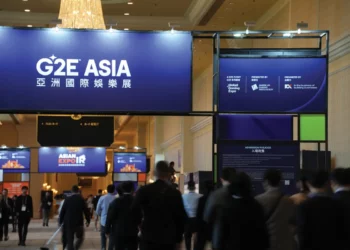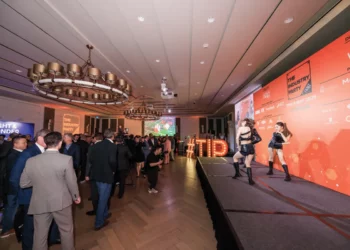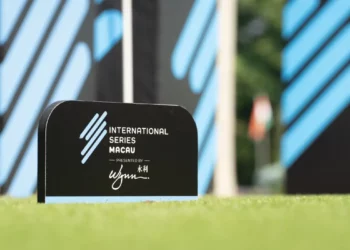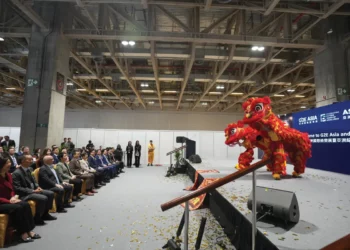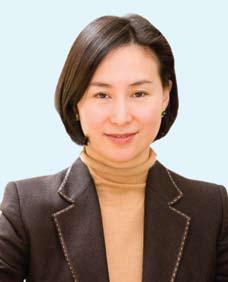 11 (14) Pansy Ho Chui-king
11 (14) Pansy Ho Chui-king
Managing Director, MGM Grand Paradise
Managing Director, Shun Tak Holdings
The first half of 2009 has certainly been interesting for Pansy Ho in the gaming and property development fields. The effects of the global credit crunch caused financial challenges in the gaming sector, where her 50:50 partner in Macau, MGM MIRAGE, was for a while left dangerously exposed and looking over-borrowed on its US$8 billion CityCenter project in Las Vegas. A relatively lacklustre performance in VIP revenue from their joint venture Macau property, MGM Grand Macau, despite the bull market that lasted up to the end of the first half of 2008, did little to dispel the gloom.
Ms Ho was also under some pressure in her other role as managing director of Shun Tak Holdings, the Macau-focused shipping and property conglomerate chaired by her father Dr Stanley Ho. Shun Tak’s ambitious residential project, One Central, next door to MGM Grand Macau suffered from the international crisis. In one case, an Icelandic insurance company that had an option on a whole tower at One Central was forced to pull out of the deal because of its own liquidity crisis.
If Ms Ho thought she was having an exciting year, it got even more exciting in May. State attorneys in New Jersey indicated they would advise the New Jersey Gaming Commission that Ms Ho was ‘unsuitable’ to be a partner for MGM MIRAGE. The claim of unsuitability is thought to relate to unproven allegations made by US Federal Authorities about triad criminal involvement in VIP rooms at casinos operated by her father, Dr Stanley Ho. This stance matters to MGM MIRAGE because it jointly operates with Boyd Gaming a successful casino property in Atlantic City New Jersey. In theory at least, the state authorities have the right to suspend or withdraw MGM MIRAGE’s gaming licence.
Ms Ho’s role as a potential heir to her father’s business empire was thrown into sharper focus during August, after Dr Ho required extended hospital treatment due to a reported fall at home. Regardless of the SJM succession issue, Ms Ho’s public profile is likely to grow in the coming years if, as expected, she clears the regulatory hurdle related to her partnership with MGM MIRAGE.
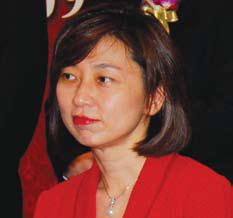 12 (-) Linda Chen
12 (-) Linda Chen
Chief Operating Officer
Wynn Resorts (Macau), S.A.
Linda Chen is distinctive not only for being one of the world’s highest paid female business executives, but also for her ability to maintain a high level of credibility with gaming industry peers in the East and West.
Steve Wynn’s decision to appoint Ms Chen as Chief Operating Officer of Wynn Resorts (Macau), S.A., in 2002 was all about pragmatism, not tokenism. Her background as a native of Shanghai plus a rigorous academic education at Cornell and then Stanford—two of the best universities in the United States—helped to forge one of the most precious of commodities in global business. That is, a highly intelligent and motivated executive who can think and communicate ideas to customers and employees in both a ‘Chinese’ and ‘Western’ way.
The result has been that despite Wynn Macau’s modest footprint in the market and a rapid growth of property supply, Wynn has managed to maintain a Macau share in the mid to high teens of percent of gross gaming revenue.
Ms Chen has been credited with two major successes. The first was efficient and cost-effective leadership in building Wynn Macau phases one and two and the successful implementation of Encore, the extension to VIP capacity currently under construction. The second was her understanding of the need to have in place an effective network of high roller agents well in advance of Wynn Macau’s phase one opening in September 2006. This understanding allowed Wynn Macau to grab market share from the opening day, rather than having to play the catch up game facing those Western operators who learned the hard way that direct players are hard to come by and that the mass market won’t yet fill the revenue gap.
MGM MIRAGE, which has a 50% interest in MGM GRAND Macau next door to Wynn Macau, is probably kicking itself that it didn’t hold on to Ms Chen’s talents. If it had, then MGM GRAND Macau’s performance might have been much better.
Ms Chen was Executive Vice President of International Marketing for MGM MIRAGE from June 2000 through May 2002, based in the United States. In that capacity, she was responsible for international marketing operations for MGM Gran Las Vegas, Bellagio and Mirage.
MGM MIRAGE’s loss has clearly been Wynn Resorts’ gain. In 2007, in recognition of her achievements, Ms Chen was appointed to the Wynn Resorts board. There she works alongside Allan Zeman, the Hong Kong-based entertainment industry entrepreneur, and Kazuo Okada, the pachinko manufacturer-turned-slot king who also gets an entry on this year’s Asian Gaming 50 – 2009 list.
Prior to MGM MIRAGE, Ms Chen served in various senior positions with the Mirage, MGM Grand and Bellagio Hotels and opened each of the three properties in 1989, 1993, and 1998, respectively.
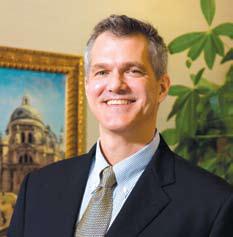 13 (-) Steve Jacobs
13 (-) Steve Jacobs
President, Macao, Las Vegas Sands Corp
Steve Jacobs had one of the toughest jobs in Asian gaming when he took up his new post in May 2009. That was to reduce costs in Las Vegas Sands Corp’s Macau operation by cutting jobs, while at the same time maintaining the morale of the remaining staff and positioning the business to take advantage of better trading conditions when they arrived.
Mr Jacobs was arguably well suited to the task. His previous job was as President and CEO of VGI, a management services group specialising in turning around and building companies in the travel, transportation and hospitality sectors.
Revenue generation was never the problem for Las Vegas Sands Corp (LVS) in Macau. The problem was keeping down operational costs on the huge Venetian Macao and generating profitability in order to help pay off project debt on that property as quickly as possible.
Given the billions of dollars of capital expenditure committed to Macau by LVS, Mr Jacobs’ operational cuts were, relatively speaking, a drop in the ocean. Politically, however, in terms of helping to maintain investor confidence, they were vital. LVS had to send out the message to investors that it was aggressively managing its costs in order to turn LVS Macau very quickly from a cash-eating machine to a profit-generating one.
Some of Mr Jacobs’ decisions were made for him after the Macau government indicated it expected casinos to cut non-residents’ jobs before those of the locals.
After his appointment, Mr Jacobs met the local media and explained that despite a likely cut of 4,000 posts, it was a temporary measure and that the company expected to hire again as soon as practically possible.
He said the government was mandating some of cuts by withdrawing 1,500 foreign worker permits. Another 600 or so hires were moved over to Singapore.
In August 2009, Mr Jacobs assumed the role of President and CEO for Sands China Limited, a wholly owned subsidiary of LVS. In this role, he is responsible for overseeing and integrating all aspects of the company’s strategy, financing, operations and development efforts for LVS interests in Macau. They include the Sands Macao Hotel, The Venetian Macao-Resort-Hotel, and the Four Seasons Hotel Macao, Cotai Strip® and The Plaza Casino.
LVS Chairman Sheldon Adelson indicated recently that he expected construction work on suspended Cotai plots five and six to begin in the New Year. A number of analysts, meanwhile, have indicated that Venetian Macao Ltd, the unit that manages The Venetian Macao complex, could generate US$1 billion in EBITDA (earnings before interest, taxation, depreciation and amortisation) over the next 12 months.
If that happens, expect to see Mr Jacobs smiling more often during company press conferences.
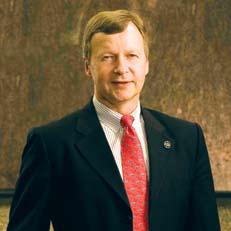 14 (7) Winfried Engelbrecht-Bresges
14 (7) Winfried Engelbrecht-Bresges
CEO, Hong Kong Jockey Club
The CEO of the Hong Kong Jockey Club (HKJC) falls 14 places to number 21 on this year’s list after presiding over a 30% year-on-year fall in club profits for 2008 to HK$700 million on a turnover only 1.5% down from 2007.
The deterioration in the results for the club—the horse racing, lottery and sports betting monopoly in Hong Kong—cannot be laid entirely or even mainly at the CEO’s door. The Jockey Club, which donates all its operating surplus to charity, is often asked by the Hong Kong government to subsidise public spending. An example is when, in 2007, the government asked the HKJC to bear the full HK$1.3 billion cost of a suggested new MTR (Mass Transit Railway) station next to the club’s Happy Valley race course on the eastern side of Hong Kong Island. At the time, Mr Engelbrecht-Bresges, a diplomatic-minded and highly-able administrator who is also one of the world’ leading authorities on commercial horse racing, signalled (in a very mild way) his frustration with the government’s position on his personal blog.
The fact that the MTR station didn’t happen might be connected to the fact the HKJC was also asked by the city authorities—and agreed—to spend HK$1.2 billion plus on facilities for the equestrian events at the Beijing Olympics last year. These included: air-conditioned stables for 200 horses; a world-class equine veterinary clinic; farrier services; 13 training arenas (including a large air-conditioned indoor arena); various galloping tracks on the infield of the Sha Tin racecourse and a 5km Olympic cross-country course and temporary stabling facilities at the Hong Kong Golf Club and the Jockey Club’s Beas River Country Club. The cost of those facilities amortised over several years may well account for some or all of the 30% fall in operating profit recorded by the Club in 2008.
When the Olympic funding deal was first struck back in 2005, the HKJC was told the government would review the tax position of the Club. The fact that Jockey Club chairman John Chan went public this July complaining about the Club’s tax burden suggests those talks have not yet been concluded to the mutual satisfaction of both sides. The government currently imposes a 72.5% levy on net stake receipts for horse racing, and a 50% levy on net stake receipts for soccer betting.
The HKJC may need to be given more autonomy to pursue new product lines and more aggressive marketing tactics over the coming years, rather than merely being provided with an Internet fire wall against overseas online betting sites. Standing still could risk erosion of the player base with the core horse racing product as older race goers die off and the sport is increasingly forced to compete for consumers’ dollars with electronic and casino entertainment in Macau and beyond. That’s especially the case if Macau Jockey Club’s product offer continues to improve and if Macau casinos are allowed to run sports betting books from their premises, as was mooted last year, or if Macau ever gets round to licensing online betting.
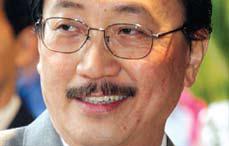 15 (26) Vincent Tan Chee Yioun
15 (26) Vincent Tan Chee Yioun
Chairman and CEO, Berjaya Group
Vincent Tan makes his second appearance on the Asian Gaming 50 – 2009 list thanks to his gaming and lottery management interests in Malaysia.
Mr Tan bears the dubious distinction of being the only Malaysian US dollar billionaire to have dropped out of this unofficial ‘club’ of the super rich in the last year. He has been hit by the triple whammy of the global financial crisis, the accompanying 10% depreciation of the Malaysian ringgit against the US dollar, plus a decline in share prices of his companies.
Those setbacks notwithstanding, Mr Tan, a father of 11, is still worth an impressive US$750 million according to Forbes.com’s ‘Malaysia’s Richest’ list. His conglomerate, Berjaya Group, reported a RM1.15 billion (US$330 million) profit in 2008.
Mr Tan has run Berjaya, which means ‘success’ in Malay, since 1984. The group has diverse interests covering hotels, real estate, finance and retailing (including Malaysia’s first Krispy Kreme doughnut store, which opened in April), and last but not least, lotteries.
Berjaya Sports Toto Berhad is Malaysia’s sole national lotto operator with more than 680 outlets throughout the country. It offers a variety of games including digit-type games (namely, 4D, 5D and 6D) and lotto-type games (namely, Toto 6/42 Jackpot, Super Toto 6/49, Mega Toto 6/52) for the domestic market.
Since 1969, the Company has donated substantial amounts to the promotion and development of sports, youth and cultural activities in Malaysia.
Berjaya Sports Toto Berhad is also involved in the leasing of online lottery equipment. Other activities include manufacturing and distributing computerised lottery systems.
Mr Tan got his start as a McDonald’s franchisee, before acquiring a controlling stake in the share capital of Berjaya Kawat Berhad from Australia’s Broken Hill Proprietary (BHP) Ltd and Singapore’s National Iron & Steel Mills.
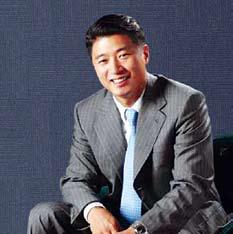 16 (13) Philip Chun
16 (13) Philip Chun
Chairman and CEO, Paradise Group
The South Korean tourism industry benefited from a weakening of the local currency, the won, following the global financial crisis that escalated in the third quarter of 2008. This attracted more customers from core markets including Japan in late 2008 into 2009.
The recent defeat of the ruling Liberal Democrats in Japan’s general election is widely regarded by industry analysts as likely to set back plans to introduce legal casinos in Japan. That should also give some comfort to the South Korean casino sector, which is dependent on foreign visitors as only one of the country’s 17 casinos is open to locals.
The result of the softening won for Korean casino operator Paradise Group was a 14.3% increase in sales in 2008, despite a raft of new venues being opened in the rival casino market of Macau in the second half of 2007, including The Venetian Macao.
The operating income for Paradise’s casino operation unit grew 11.9% in 2008, recording 19.2 billion won (US$15.4 million), says the company.
The best known and biggest earner among South Korea’s 16 foreigner-only casinos is Paradise Group’s Paradise Walker Hill Casino, which opened in 1968 at the Seoul Sheraton Hotel on Walker Hill.
Paradise estimates the foreigner-only casinos in Seoul account for 72% of gross casino gaming revenues in the country. The company says the Korean market overall has grown 57% in three years to record annual gross revenues of 755.5 billion won (US$608.6 million) in 2008.
The potential for the market would be much greater if the government were to open the whole market to local players. There is no sign currently that this is on the political agenda. Currently, only Kangwon Land Resort & Casino in Jeongseongun, operated by the property development company of the same name, is open to locals.
Paradise Group has long dominated the country’s casino industry, which began in 1968 with the opening of a casino in Incheon, where the international airport serving Seoul is located. The Incheon property was taken over by Paradise in 2001 and renamed the Paradise Golden Gate Casino. The company also owns and operates Paradise Casino Busan and two casinos—Paradise Grand Casino and Lotte Casino—on the resort island of Jeju.
Paradise also notably operates the largest casino in Kenya, Africa—the Paradise Safari Park & Casino, which houses 40 tables and 600 machines.
In addition to casinos, the Paradise Group runs hotels and restaurants and is involved in manufacturing, duty free retailing, construction, consulting and non-profit activities. Philip Chun effectively took over the reins of the company from his late father, Chun Rak-won, in 2004.
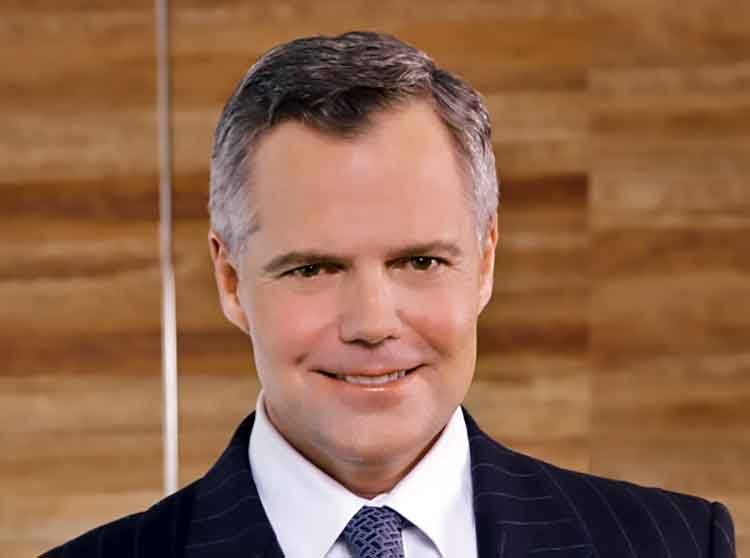 17 (-) Jim Murren
17 (-) Jim Murren
Chairman and Chief Executive Officer, MGM MIRAGE
Jim Murren had a torrid time in the first half of 2009 with a constant juggling act to meet lenders’ covenants on the company’s US$13.5 billion global debt burden.
Given that MGM MIRAGE is only a 50% partner in MGM GRAND Macau (alongside Pansy Ho), the property was never going to command quite as much of Mr Murren’s attention during the funding crisis as CityCenter in Las Vegas, which accounts for around US$8.6 billion of the money the company owes.
Those existential pressures eased slightly in May after the company announced a refinancing package. That allowed Mr Murren some breathing space to think tactically about the company’s business, rather than just strategically.
Once Mr Murren had some time and space to reflect more on the Macau operation, he came out fighting. In July, in comments reported by Bloomberg, he described MGM GRAND Macau’s performance from the time of its opening in December 2007 as “underwhelming”.
“Our Macau market share is half what it should be,” he added, adding rather ruefully, “the other US-based and other newer casinos have been more aggressive in marketing, more aggressive in recruiting and junket relationships.”
This was some admission, which must reflect as strongly on the company’s joint venture partner Ms Ho as it does on MGM MIRAGE and its management. Ms Ho, after all, had the advantage (in theory) of local knowledge and an inside track on the elements required for the successful launch of a casino in that market thanks to her father’s unique and pre-eminent role in Macau.
Whether it was by good luck or good management, in the same month Mr Murren’s comments were reported, MGM GRAND Macau saw its monthly share of Macau gross gaming revenues leap from 8% to 12%. Some industry insiders linked the improvement with several high rollers being lured away from rival properties, instead of a major improvement in the fundamentals, such as the mass-market appeal of the property. The July returns weren’t, however, just a flash in the pan, with MGM GRAND Macau recording an 11% share of GGR in August.
Mr Murren’s headaches regarding the Macau operation aren’t over just yet. The company is still waiting to hear what action, if any, the gaming regulators in the US will take regarding the company’s partnership with Pansy Ho. It follows reports in May that state attorneys in New Jersey, which licenses the Borgata Hotel Casino & Spa in Atlantic City—run by MGM MIRAGE and Boyd Gaming—had found Ms Ho to be an “unsuitable” partner for MGM in Macau. Expect 2010 to be just as busy for Mr Murren as was 2009.
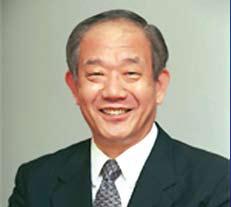 18 (12) Kenji Tsuchikawa
18 (12) Kenji Tsuchikawa
President and CEO, Japan Racing Association
Under Kenji Tsuchikawa’s leadership, the Japan Racing Association (JRA) has extended its marketing and cooperation programme with other horse racing jurisdictions in the Asia Pacific region.
The arrangements do not yet constitute a horse racing international ‘tour’ of the sort promoted to spectators in sports such as Formula 1 motor racing or the Professional Golfers’ Association PGA TOUR for golf. There are, however, significant strategic benefits available to the JRA from international cooperation, especially at a time when the horse racing industry has to compete for customers against an East Asian casino and lottery market that is growing in capacity year by year. These benefits include the ability to cross-promote events and to offer greater market coverage to advertisers and television companies.
In May this year, the JRA announced a joint initiative with the Hong Kong Jockey Club (HKJC) known as Hong Kong-Japan Tourism Exchange Year 2009. As part of the scheme, the promotion of tourism between the two markets is being tied in with major horse racing events, namely: Japan’s Yasuda Kinen (which was held in June) and the Cathay Pacific Hong Kong International Races in December. Horses from Japan regularly race in Hong Kong, and vice versa.
The Yasuda Kinen, a Group 1 race over 1,600 metres, took place at Tokyo Racecourse on Sunday 7th June. On the same race card that day, the JRA designated race nine as ‘The Hong Kong Jockey Club Trophy—Hong Kong Japan Tourism Exchange Year 2009’.
In turn, the HKJC will host ‘The Japan Racing Association Trophy—Hong Kong Japan Tourism Exchange Year 2009’ as part of the Cathay Pacific Hong Kong International Races meeting at Sha Tin in Hong Kong on 13th December this year. This is the flagship event in the Hong Kong racing calendar, sponsored by Hong Kong’s main air carrier, Cathay Pacific.
Top international race meetings such as the Audemars Piguet Queen Elizabeth II Cup and the Champions Mile also in Hong Kong, and the Japan Cup, Yasuda Kinen and Sprinters Stakes in Japan, attract thousands of overseas visitors every year.
Dr Tsuchikawa of the JRA said at the time he was excited by the cooperation agreement with HKJC. “On the commemorative race day in Hong Kong in December, there will be special promotion of Japan’s tourism attractions. I hope many Hong Kong people will see this and that it will be an incentive to visit Japan,” he said.
Mr Tsuchikawa is a career horse racing official—the first to have risen through the ranks to become president. He joined the JRA in 1968 as a veterinary surgeon. In September 2007, he was named president and CEO of the association. The JRA was founded in 1954 and centrally manages horseracing in the country, as well as racecourses, betting operations and horse-training facilities.
Mr Tsuchikawa has expanded the JRA’s efforts to promote the sport in Japan and elsewhere in Asia by leading the association into a greater cooperative role with the Asian Racing Federation.
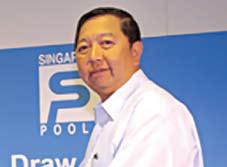 19 (15) Tan Soo Nan
19 (15) Tan Soo Nan
Chief Executive, Singapore Tote Board
As Chief Executive of Singapore’s Tote Board, Tan Soo Nan is responsible for overseeing one of Asia’s oldest and most successful government gaming monopolies, which has roots going back to 1968.
In 2007, Singapore’s Ministry of Community Development, Youth and Sports said 53% of Singapore’s then 4.5 million population regularly participated in the Tote Board’s 4D lottery. This four-digit lottery draw held at weekends provides the bulk of the annual revenue generated by the Board—around S$4.2 billion (US$2.91 billion) in 2007.
In 2008, betting tax from all the Tote Board’s activities—including lotteries, soccer betting, horse racing and trackside pari-mutuel betting—contributed S$1.81 billion (US$1.26 billion) to Singapore’s national budget, according to the country’s Ministry of Finance. The estimated contribution of betting tax to the 2009 budget is S$1.86 billion; a year-on-year rise of 2.8%, according to the ministry.
The Tote Board also donates surplus funds generated after tax from the operations of Singapore Turf Club and Singapore Pools to social projects in Singapore.
To illustrate just what a hold the 4D lottery in particular has over the locals’ imagination, whole websites exist devoted to the reported ‘science’ of identifying and picking lucky 4D numbers. Local media reports say devotees even stop at the site of car accidents to jot down registration numbers for possible use in the draw. Why bad luck for a motorist translates into good luck for a lottery player isn’t fully explained in the reports.
Whether Singapore’s casino resorts will cannibalise any of the revenues from Tote Board betting products when the casinos open next year remains to be seen. Slot machines would normally be considered the natural competitor to lotteries, given the generally better odds of achieving a win on slots and the modest stake money involved. Given the relatively high cost of casino entry for Singapore residents, however, and the modest entry price of the Tote’s lottery products (S$100 per day for the casinos versus S$1 for ordinary entry to the 4D draw), it seems the casinos are aimed at distinctly different markets in terms of consumer income.
Mr Tan has extensive business experience as a managing director of DBS bank and as a senior executive with a subsidiary of Temasek Holdings, the Singapore government’s investment vehicle. He will need the benefit of that commercial knowledge to ensure the Tote maintains its strong position in Singapore’s expanding gaming market.
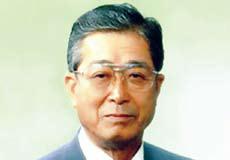 20 (20) Kunio Busujima
20 (20) Kunio Busujima
Founder, Director and Senior Advisor, Sankyo Co
Kunio Busujima is another of the ‘pachinko billionaires’ on this year’s list. They are men who first got rich from the Japanese craze for this pinball-like machine. While some of the pachinko ‘kings’ have used their riches to branch out into other areas of entertainment and gaming, Mr Busujima’s business, Sankyo Co, has stayed largely focused on its core business.
At the age of 83, Mr Busujima has now stepped down as Chairman of Sankyo Co, the company he founded in 1966, in favour of his son Hideyuki.
Mr Busujima senior remains, however, one of the wealthiest people in Japan, occupying the number two spot (up from number three last year) on Forbes.com’s ‘Japan’s Richest’ list for 2009. This is despite his net worth falling by the odd US$200 million to US$5.2 billion since 2008.
Sankyo has been busy updating its image to keep in line with the tastes of a younger generation of players seeking Western-style glamour. In 2008, Sankyo hired Hollywood star Nicholas Cage to appear in a series of television commercials in Japan, playing the role of a pachinko aficionado.
Other innovations to modernise the industry’s offer to customers include pachinko parlours with bars and cafés and some with women-only sections. Last year, an analyst’s report suggested the pachinko industry across Japan employs around 300,000 people—more people than even Japan’s steel industry.
Mr Busujima senior originally worked for rival pachinko manufacturer Heiwa, the company that helped launch pachinko in Japan after World War II. He witnessed the growth of pachinko manufacturing from a “cottage industry” into an innovative modern one.
In the 1970s, Mr Busujima contributed to the revolution of pachinko manufacturing by inventing the immensely popular “Sankyo Fever” machine. His creation prompted a new wave of advances in pachinko design that used high-tech, state-of-the-art manufacturing equipment and techniques.






















